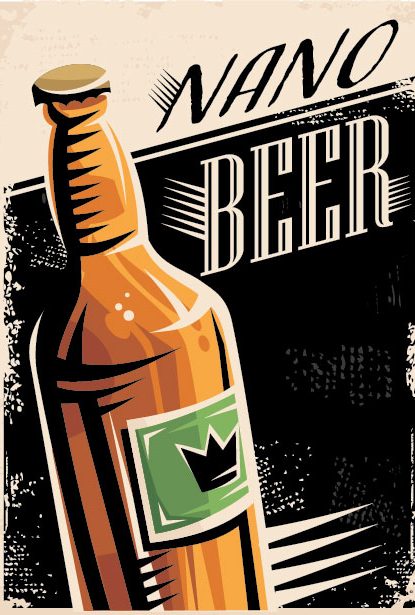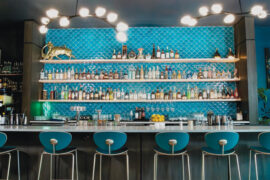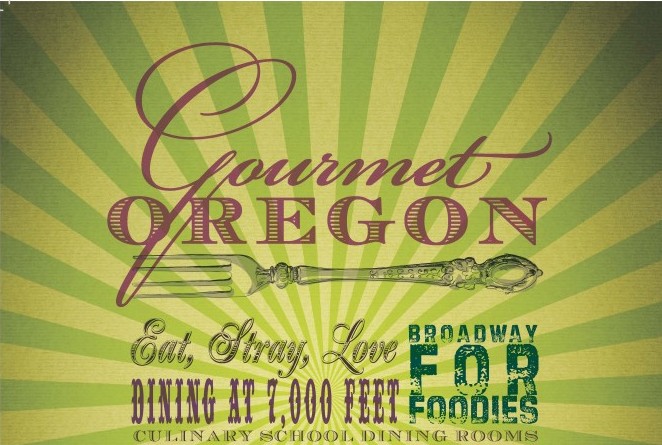written by Jeremy Storton
Trying to pin down a definition of a nano brewery is impossible. Even the Oregon Liquor Control Commission doesn’t make the distinction among brewery sizes. Ask anyone, though, and they agree—the nano brewer is small.
Steve Anderson of Bend spent his career in a control tower for the FAA. Now he has turned his careful attention to the very small Kobold Brewing. “I’m a nano brewer. I have a two-barrel brewery,” he said. “The end result when the day’s out is I end up with a 62-gallon batch.” Besides the business of ordering materials, developing recipes, brewing the beer, washing the kegs, keeping good notes, marketing, selling and delivering the beer, he is also the general contractor for the tap house he opened in Redmond this past summer. “It’s me. It’s all me, a one-man show currently.”
So why put such tremendous effort into such a small brewery? “I felt like anything I’m going to do at this point in my life has got to be fun. I’ve got to really enjoy doing it. It’s got to kind of be a community, other people have to enjoy it with me.”
Nano-brewing means hyper-local beer
It’s the hyper-local beer community that makes a nano brewery’s smallness an asset. Ages ago brewing was a community service that fed beer to the village that surrounded it. Public houses were gathering places where people discussed ideas, like how to form a new country. Though beer has been a global commodity for more than a century, nano breweries like Kobold fill a niche by continuing this tradition. And it seems nano brewers are better at connecting with their customers than larger breweries.
“The ones that are going to survive,” said Janet Capstick, senior key account manager for Anheuser Busch, “they’re going to be good in their own realm. They have to define their own realm, but they’re different and it’s okay to be different in this world.”
The question remains, how does a very small brewery compete with large ones that distribute around the world? “[A nano brewer] competes with Deschutes [Brewery], not in the volume level of 200,000 barrels, of course not,” said Bob Lauron, vice president of retail sales at Maletis Beverage in Portland. “But, in a qualitative sense, he lives with them at that point of purchase where that customer buys that product.”
When asked how he competes for market share with larger breweries, Anderson had a simple answer. ”I don’t compete, I provide an excellent product and it sells itself.”








